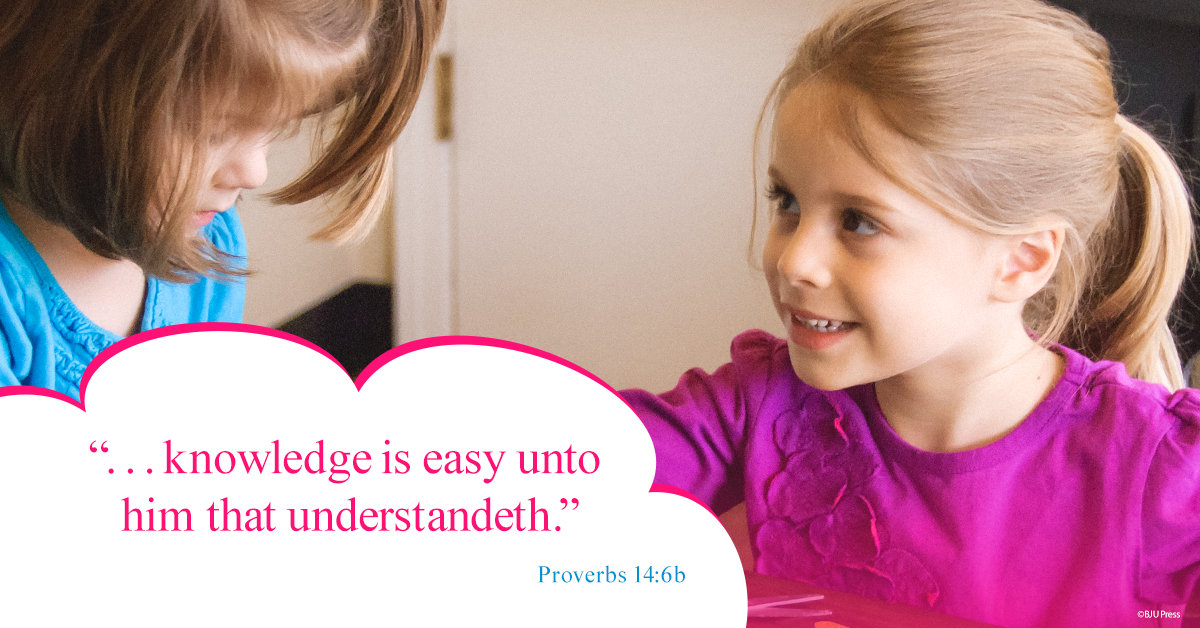
“It’s easy for small children to memorize, so memorize as much as possible.” I heard this maxim over and over when I was growing up. And from my experience, I would say it’s true. In our family worship time, my small children memorize the verses and songs far more quickly than I do. It’s certainly worthwhile for children to store up knowledge while they’re young, but is it best to focus on memorization as the main educational approach for small children? Should six- to ten-year-olds primarily memorize for math, science, reading, spelling, and history?
Proverbs 14:6 provides insight into the way we learn: “. . . knowledge is easy unto him that understandeth.” Here the Holy Spirit tells us that knowledge flows best from understanding. What I observe in my own children (ages 6, 4, and 2) is that their useful knowledge is always based on comprehension. I asked some of the educators here at BJU Press to help me understand why focusing on comprehension, even at the youngest ages, is the best approach. Here’s a summary of what I learned.
Avoiding Conditioning for Memorization
When children start learning by memorizing, they become conditioned to think of learning as memorizing. This often leads older children to protest about the expectations in high school. The request to “tell me what is on the test and I’ll memorize it” is characteristic of children who have been conditioned to think of learning as memorizing. In reality, memorizing is a small part of education. An education that prepares children for life is one that prepares them to understand and apply what they’re learning.
Experiencing Education as a Whole
Some children struggle more than others with memorizing. This seems to be the case more often for boys. I know that was my experience. Children who find memorization difficult could come to think that learning isn’t for them even though they may be excellent learners when it comes to higher forms of thinking such as applying, evaluating, and creating. If we as parents focus on the entire educational process, then our children will enjoy learning far more.
Preparing for Success
Sometimes children learn to translate letters on a page into sounds without getting the meaning of the words. Or they can rattle off the math facts for multiplication up to twenty but don’t understand how multiplication is used in everyday situations. Real life doesn’t give us multiple-choice options. It requires skill in using knowledge. That skill demands more than the superficiality of memorization.
I find gratification when my children can recite the facts that I’ve taught them. However, I know that those facts are useless without understanding. That’s why my wife and I ask our children comprehension questions to help them understand. Knowledge will come easiest when they understand.